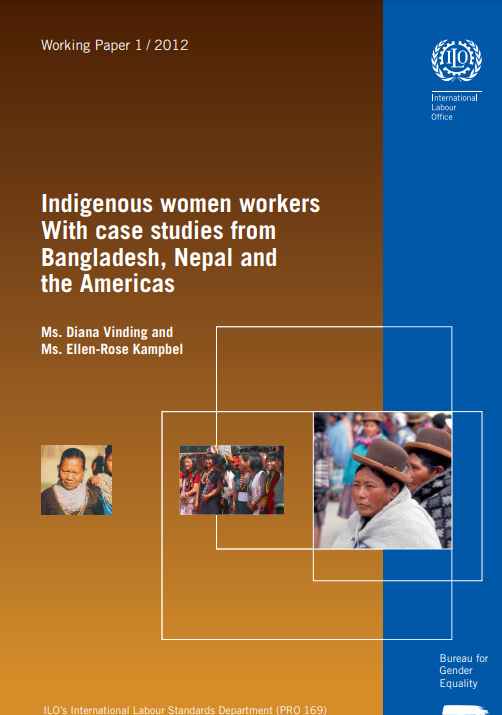
Indigenous Women Workers – With Case Studies from Bangladesh, Nepal and the Americas
Publication Year: 2012
Author(s): Vinding D , Kampbel ER
Abstract:
Indigenous women all over the world make an important contribution to their communities and to the world of work. However, they experience discrimination, not only on the ground of sex, but also because indigenous identity, ethnicity, colour and religion. This multiple discrimination is particularly evident as they enter and advance through the labour market. Over the past decades, the livelihood of indigenous women has undergone major changes as indigenous peoples have increasingly lost control over their ancestral lands, lands they traditionally occupy and natural resources. As a result, in order to supplement their household income and survive, an increasing number of indigenous women are entering the formal and informal labour market, as self-employed workers or wage earners.
Source of Publication: ILO’s International Labour Standards Department
Publisher/Organisation: ILO’s International Labour Standards Department
Theme: Indigenous People | Subtheme: Indigenous People Rights
Related Documents
Training Materials

How to Do Note: Seeking Free, Prior and Informed Consent in IFAD Investment Projects
Published Year: 2015
Abstract:
Free, prior and informed consent (FPIC) is an operational instrument that empowers local and i... Read More
Training Materials

Abstract:
This Manual aims to support and strengthen the work of national human rights institutions (NHR... Read More



